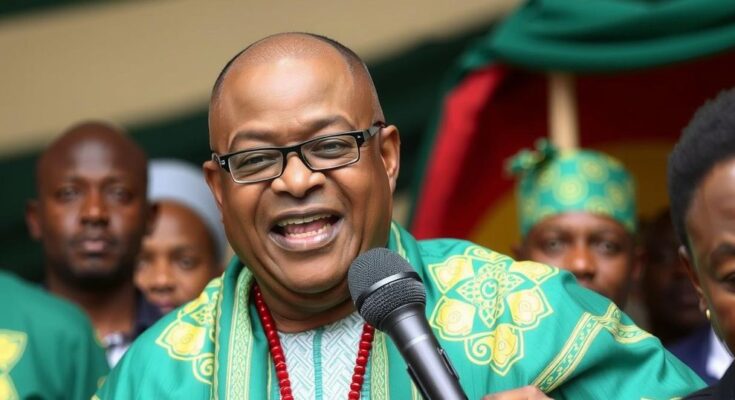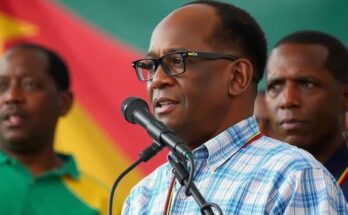John Mahama has made a historic comeback to the presidency of Ghana, having previously served from 2012 to 2017. His victory follows a tumultuous economic period marked by debt default and an IMF deal. Mahama’s campaign focused on promises to renegotiate the IMF agreement and address corruption, positioning him as a candidate of change amid widespread public discontent.
In an impressive political comeback, John Mahama, the former president of Ghana and leader of the National Democratic Congress (NDC), has won the presidency for a historic third time. After two previous unsuccessful attempts, he capitalized on widespread economic discontent, particularly following Ghana’s recent debt default and its subsequent $3 billion agreement with the International Monetary Fund (IMF). This victory marks Mahama as the first president in Ghana’s Fourth Republic to reclaim the presidency after being ousted from it. Mahama secured his position by defeating the current Vice President, Mahamudu Bawumia of the New Patriotic Party (NPP), who acknowledged Mahama’s victory soon after the election results were announced.
During his previous term as president from 2012 to 2017, Mahama faced several challenges, including allegations of corruption and an energy crisis leading to widespread power outages known as “dumsor.” However, his campaign effectively highlighted his leadership experience and his plans to address the nation’s pressing economic issues. Mahama has proposed a comprehensive policy to revitalize the economy, promising to renegotiate parts of the IMF agreement and implement measures to foster a vibrant job market, which resonates particularly with younger voters concerned about employment opportunities.
Mahama, who has authored a memoir chronicling his experiences and undergone formative events in his youth, including being affected by a military coup, is keenly aware of the political landscape. His campaign also focused on instilling trust through the establishment of a new office to oversee government procurement exceeding $5 million, aimed at combating corruption. Despite his past administrative hurdles, Mahama’s return to power is viewed as an opportunity for change in Ghana’s governance.
The political landscape in Ghana has evolved significantly since the return to multi-party democracy in 1992. Historically, the country has witnessed various election cycles where leaders shifted between the major political parties. John Mahama’s journey exemplifies the resilience found within Ghana’s political culture and highlights recurring economic challenges. His election comes at a critical time, given Ghana’s recent economic struggles, including debt default and the reliance on the IMF for financial assistance, creating a perfect backdrop for his campaign. Mahama’s past as both a leader and a targeted politician positions him uniquely to address the economic grievances voiced by many Ghanaians.
The comeback of John Mahama as Ghana’s president marks a significant moment in the nation’s political history, particularly within the context of economic distress and previous administrative challenges. His ability to pivot public frustration into electoral success underscores a deep desire for change among the populace. As he embarks on his new term, Mahama’s proposals to address corruption and revitalize the economy will be critical benchmarks for his administration’s effectiveness. The implications of his leadership will likely influence Ghanaian politics and societal dynamics for years to come.
Original Source: www.wfxg.com




